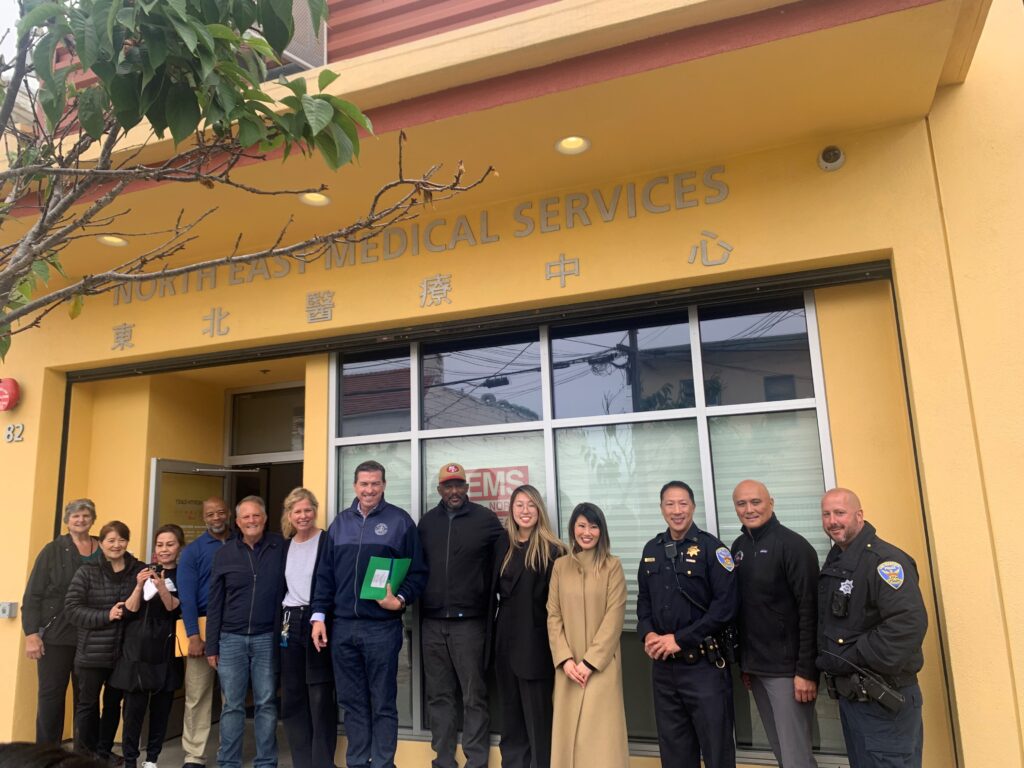We recently interviewed North East Medical Services (NEMS) Government & Community Affairs Director Jessica Ho. NEMS, a proud ACH member, is one of the largest community health centers in the United States targeting the medically underserved Asian population.
How has working at North East Medical Services (NEMS) influenced your career?
I am truly thankful for all the experiences, opportunities, and growth that I have gained through working at NEMS. I have been able to work on a wide variety of issues that range from organizing press conferences to hosting community events to advocating for issues that are near and dear to Federally Qualified Health Centers (FQHCs). However, the most impactful experience that NEMS has offered me was to allow me to grow a team from the ground up. When I first started, NEMS didn’t have a Government and Community Affairs department. Now, I am the Director of the Department, and I get to work with my wonderful team to continue enhancing NEMS’ brand in the community, building out relationships with elected officials and community leaders, and embedding NEMS into the communities in which it serves.

What are some of the barriers NEMS faces daily to provide healthcare services?
NEMS is an FQHC based in the San Francisco Bay Area. We serve over 70,000 patients on an annual basis, and most of our patients are monolingual Chinese-speaking who also identify with an immigrant background. As a result, NEMS prides itself in being one of the most culturally and linguistically appropriate clinics for the Asian underserved community. However, this accomplishment does not come without its own set of unique barriers. For instance, finding medical professionals who can also speak any dialect of Chinese is already very difficult. It is even more difficult, however, to find medical professionals who speak specific dialects of Chinese that are usually only common in a few places like San Francisco such as Cantonese or Toishanese. As someone who speaks colloquial Mandarin, even I cannot communicate with our patients who only speak Cantonese or Toishanese. As a result, I think this unique barrier is something most people don’t think about or know that NEMS must consider in its hiring and retention strategies.
You recently attended our 2024 Annual Member Meeting in Washington, DC for a third year in a row, where you were presented with the Advocate of the Year Award. How does this motivate your health advocacy work going forward?
It has always been my dream to make sure that every American receives the necessary health-related services and programs they need to live a fruitful and meaningful life. Healthcare is a right, not a privilege, but the truth remains that only the most privileged Americans can walk into any doctor’s office in America without worrying about the cost. While the healthcare system is already difficult to navigate for most people with insurance, those who rely on government programs like Medicaid and Medicare are even more vulnerable. Working at NEMS has allowed me to better understand the intricacies of the operations, organizational structures, and payment systems that NEMS utilizes to achieve its mission of providing affordable, comprehensive, compassionate, and quality healthcare services to everyone – regardless of income or documentation status. In turn, my advocacy for community health centers has become richer and more comprehensive with real anecdotes, issues, and situations that affect our staff and patients. Receiving the Advocate of the Year award only further motivates me to continue my health advocacy for our community health centers and our patients.
Why is it important for NEMS to be a member of ACH?
First, the staff of ACH are some of the most knowledgeable, helpful, and personable people I have met on the Hill. Second, I believe that ACH provides an invaluable service for its members by being able to hear directly from decision-makers. For instance, ACH has cultivated spaces where Senator Bernie Sanders and CMS Administrator Carole Johnson have held meaningful conversations with members in the room about questions related to funding, workforce, and more. Finally, I think it is important for NEMS to be a member of ACH because the other members of ACH represent some of the most innovative FQHCs in America.
What would you say to community health centers that are considering joining ACH?
In this new dark age of misinformation, I believe that ACH serves as a beacon of light, allowing you to hear directly from decision-makers who directly affect your health center, build relationships with key players in the industry, and join a support network of other FQHCs that share a similar mission.
You can learn more about NEMS and its impactful work at www.nems.org.